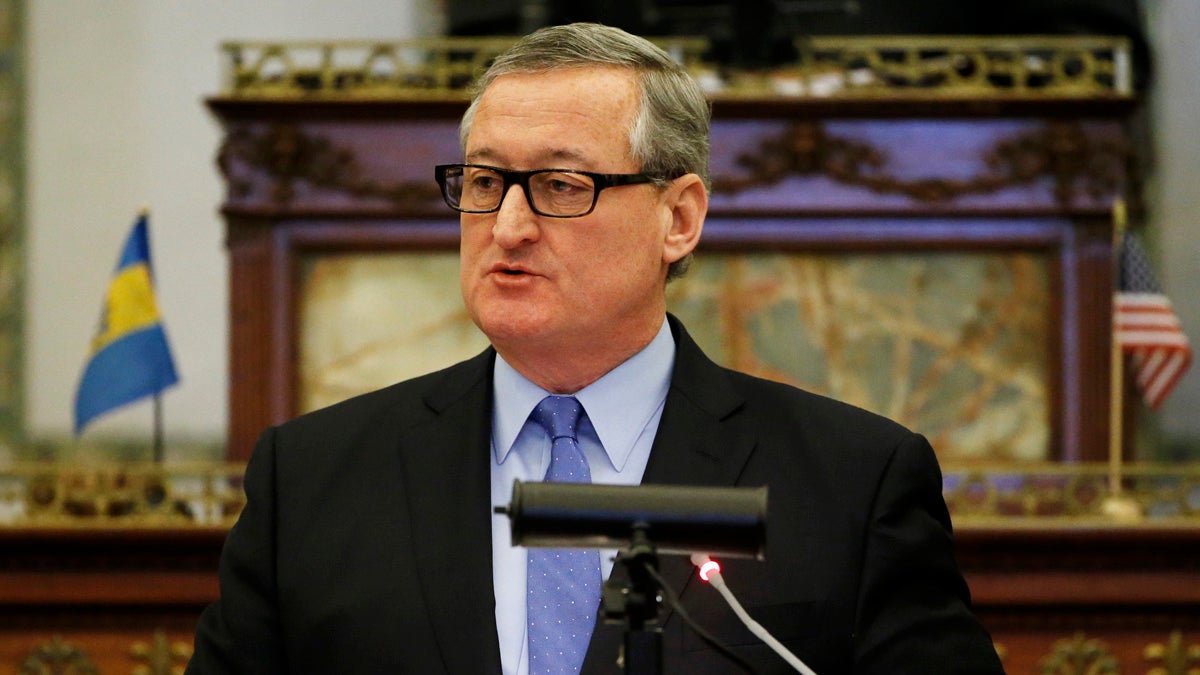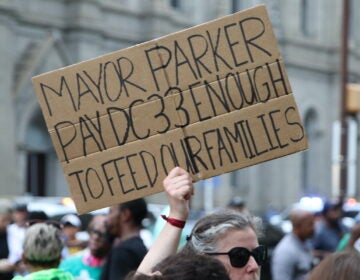Kenney delivers $4 billion spending plan with call for soda tax
Listen
Mayor Jim Kenney delivers his budget address to City Council Thursday at City Hall in Philadelphia. Kenney is seeking a soda tax to help fund several new initiatives including citywide pre-K. (AP Photo/Matt Rourke)
There were no major surprises in Philadelphia Mayor Jim Kenney’s first budget address Thursday.
“It feels really good to be home … I’ve spent half of my life in this chamber,” said the new mayor of the City Council chambers where he served for 23 years.
Then he delved into the details of his more than $4 billion spending plan.
He told his former colleagues a tax on sugary drinks is the only way to raise the funding for citywide pre-K, fixing recreation centers and libraries as well as bolstering the sagging city pension fund.
“There is simply nowhere else to find this revenue,” he said. “We all know we can’t raise property taxes again, we’ve already raised them four times in the last five years.”
Despite the call for a new tax, City Council members said they will seriously consider the spending plan.
Councilwoman Jannie Blackwell, an outspoken education supporter, still has reservations about the tax, saying it could cost jobs — including hers — if it passes.
“I’m worried about labor, and I’m worried about labor because we should be,” she said. “And like I continue to tell people around here, I like my job and I know how people feel about taxes.”
Council President Darrell Clarke said the proposal deserves a thorough vetting before anyone makes a decision.
“I don’t think there is any appetite to raise real estate taxes for anything, even schools, which has been the case for the past several years,” Clarke said. “We have a fund balance that allows us to provide core services to the city of Philadelphia.”
Councilman Alan Domb, who is a partner in several restaurants, said he’s open to the tax because it’s targeted at improving educational opportunities for children.
“We have to do it. We have to fund pre-K,” he said. “We’ve got to figure out a way to do it.”
John Longstreet, CEO of the Pennsylvania Restaurant and Lodging Association, listened to Kenney’s proposal and said the 3-cents-per-ounce tax would cost jobs and could force some restaurants to close.
“The restaurant industry is an industry that is very fragile,” Longstreet said. “It operates on a very thin margin.
“Look at the number of restaurants that open and close in Philadelphia. The reason is because they work on very tight margins.”
Twice before, a coalition of bottlers, Teamsters who deliver soda, and restaurant owners have defeated proposed soda taxes in Philadelphia. And Kenney’s plan calls for a higher levy than those previous proposals — it would add 36 cents to the typical cost of a 12-ounce can.
WHYY is your source for fact-based, in-depth journalism and information. As a nonprofit organization, we rely on financial support from readers like you. Please give today.





